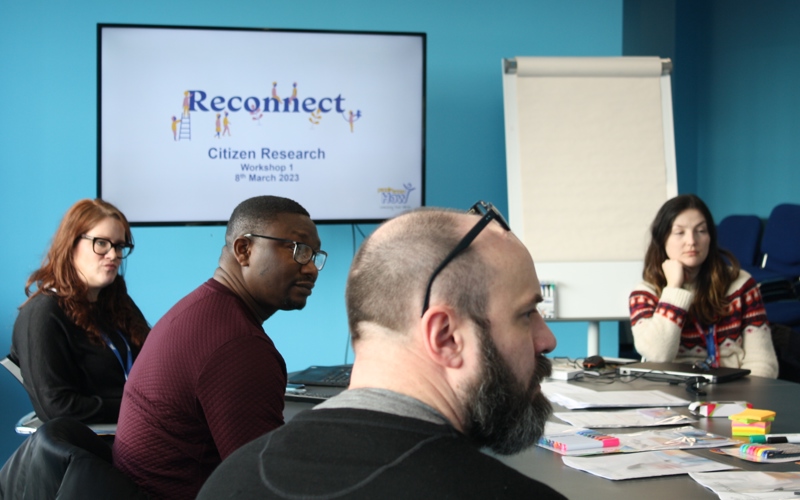Last year, Research Data Scotland (RDS) launched the Public Engagement Fund with the aim to support projects across Scotland which would involve and engage members of the public who may not usually interact with science to take an interest and have a voice in data science. We were inundated with high quality applications so increased the total funding from £40k to over £56k. The eight funded projects exceeded expectations reaching over 2700 participants including participants who had not engaged with data science before.
I met with project leaders throughout the funding window and saw how the project leaders adapted to meet their audience needs. Our mid-way blog posts Diverse voices, better outcomes and Creating a lasting impact through public engagement give more information on their approaches.
Outputs
As the funding came to an end in November last year, we got to see the final creative outputs and reports.
Several projects produced videos, either to communicate information in an engaging way or as a creative process to explore participants’ views. SHINE worked with pupils, teachers and parents/carers to produce an infographic and video responding to concerns about linking administrative data to longitudinal studies. University of Glasgow produced an animated version of existing research on perinatal mental health, which was screened at the Scottish Mental Health festival. Working with an animator and participants at Restoration Fife, the University of Dundee co-created animations about the use of administrative data relating to drug use. Participants developed their own animation concepts and even provided voice overs for the films.
For others their outputs were a little more interactive. Generation Scotland created hands-on activities to be used at festivals and large events, acting as a starting point for discussion around data in longitudinal studies. The Data in Biological Research team developed a workshop and drop-in activity using Minecraft to explore how we collect data about infectious diseases, and how that influences policy. School pupils who took part said ‘[the use of Minecraft] helped me understand and visualize what was going on’.
Work by Grampian Regional Equalities Council (GREC) explored the lived experiences of immigration into the UK and produced a report which feeds into a wider evidence base addressing inequalities in north-east Scotland. For People Know How, the findings and report from their citizen researchers will help shape the future of their service and inform the language used in internal and external communications.
The projects presented their work at an online public showcase event in February 2024.
Challenges and learnings
Since the end of the funding, all the project leaders have met with each other and Research Data Scotland to discuss learnings.
There were challenges in trying to complete this type of work within a tight timescale – projects received funding in March and had 6 months to complete them. Establishing new connections with community groups takes time to build trust, especially groups who may not normally engage with data research.
Flexibility by RDS as the funder and projects was important, particularly where co-creation involved. When applying for funding, the projects could outline the approach they would take but not the final content since this would be influenced and led by the participants.
Adapting to the needs of the groups wasn’t just important within sessions but factored in to how to recruit participants, where to hold the sessions and how to pay participants. For one of the projects, participants particularly appreciated being able to choose their catering.
Impact
The funded projects directly reached over 2700 people in just six months. We asked the projects what the impact of the funding was on participants, project teams and the organisations. For some teams it was a chance to try something new, and for others to develop work they already had started. One researcher on the Imagining Beyond project concluded ‘this is the sort of research project I had hoped would be possible over 10 years ago but never seen it until now’. For some projects it gave researchers chance to work with each other in new ways and attend different events to interact with new audience.
For most of the project teams, the end of the funding has not meant the end of their work, and some have used their findings to secure future funding. Generation Scotland will be taking their hands-on activities to future events and have been able to identify barriers for participants to their study. University of Edinburgh will be further developing their Minecraft workshop and maintaining an ongoing relationship with Skills Development Scotland. All who developed new relationships with organisations intend to continue working with those groups and highlighted the impact these new connections will have going forward.
The report from GREC will help shape future research needs, inform policy and was also fed back to community leaders to help them identify needs within their communities. Areas covered by the workshops highlighted issues with children and schooling, access to information and barriers to healthcare.
It isn’t just the project teams who are continuing the work. Some participants have signed up for future involvement on panels or as public participants. Most of the participants hadn’t previously heard of or been involved with data research before these projects.
We can see the importance of this engagement in the participant feedback. A young person who took part in activities with Generation Scotland ‘I never knew research affected us all in such a positive way and that it can be exciting and fun too. I totally think about research differently now’. In the Imagining Beyond project which explored gaps in mental health data, one participant asked, ‘where was I [when this question was asked]?’.
New perspectives and input from participants with lived experience can help change how research questions are asked and data collected. Following discussions with participants in this project they reported - ‘as a result of conversations with a local community wellbeing collective and during discussions at local science festivals, we have included social isolation as a key influence across research questions’.
The full impact of these projects is impossible to cover in a report, video or blog post. The ripple effect will continue through changes to research practice, ongoing public engagement activities, and the inclusion of new voices in data research for years to come.
Thank you to all the projects and participants for their hard work over the last year in making this happen.
Find out more about the funded projects and watch the videos from the online showcase.



